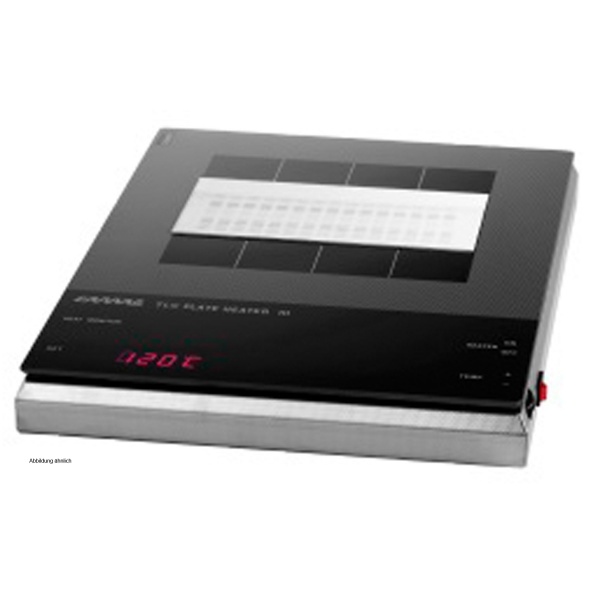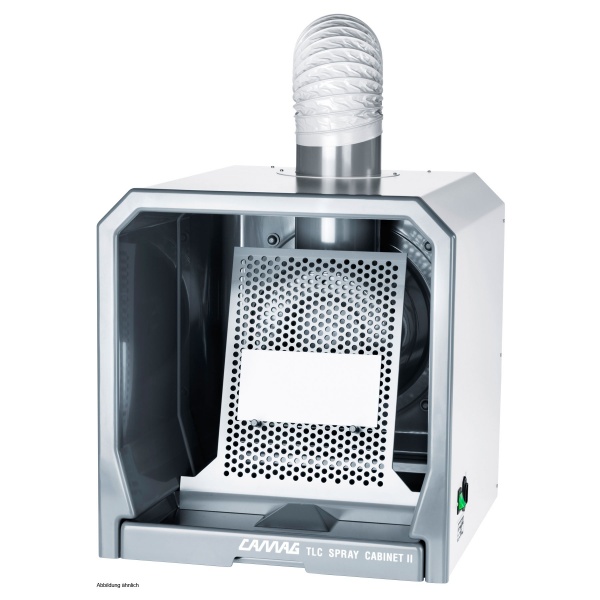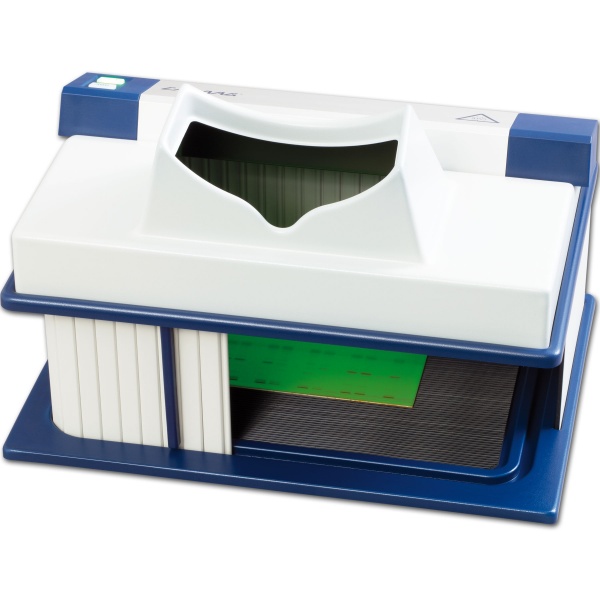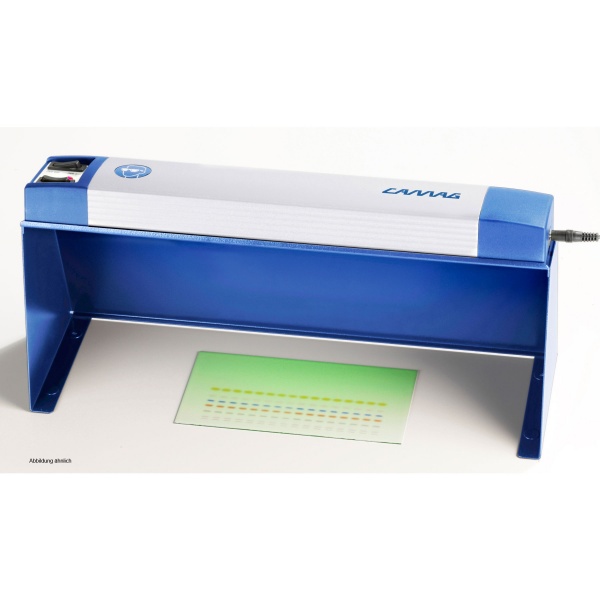Laboratory Chromatography Equipment
Manufacturer for Chromatography Equipment
Chromatography - application in different fields
Chromatography is a chemical process used in the laboratory in which a mixture of substances is separated by the different distribution of its individual components between a stationary and a mobile phase. Depending on the chromatographic separation process, the stationary phase consists of a solid or a liquid and the mobile phase consists of a gas or a liquid.
The purpose of chromatography is to detect individual substances from a mixture in the analysis or to determine their concentration as well as to isolate substances preventively from substance mixtures for further processing. The method of chromatography finds its practical application in chemistry, biology, medicine, pharmacy, environmental analysis, forensics, food or chemical industry. Examples of application: In production, for example, preparative chromatography is used to isolate or purify substances, in chemical analysis to separate mixtures into ingredients that are as uniform as possible for the purpose of identification or quantitative analysis of samples.
Our range of chrom atography equipment includes chromatography devices, systems and accessories for a wide variety of applications in the laboratory, inorganic and organic chemistry, biochemistry, microbiology, biotechnology, food or environmental chemistry.
Chromatography: Basic principle and explanation of the separation process
Chromatography explained easily and simply: Although there are different chemical processes of chromatography, the basic principle can be illustrated relatively simply using a vivid example. A raging river, for example (water = mobile phase), usually carries some flotsam with it(= different substances in chromatography).
The speed at which the flotsam moves along depends on various factors: On the one hand, it depends on the type of flotsam; small grains of sand are transported faster than larger stones. On the other hand, it depends on the nature of the riverbed(= stationary phase), rough surfaces naturally increase the friction of the flotsam and thus reduce the speed of transport - and finally on the speed of the current.
So if you shake a sand mixture with small grains and larger pebbles into the river, in principle first all the fine-grained sand arrives at a certain place, a little later smaller stones somewhere else and then the larger ones at a certain section. In chromatography, various substances of a mixture are accordingly distributed differently.
In the mobile phase, a liquid or gas moves past a solid or liquid stationary phase more or less quickly, separating the substances it contains. The separation of the constituents is related to their affinity to the stationary or mobile phase.
Chromatography: Types of separation processes
The different types of chromatography can be divided according to the separation principle into adsorption, distribution, ion exchange, affinity, gel permeation or chiral chromatography. In our assortment, we have devices for the separation methods HPTLC and TLC available for you in particular.
For the user in the laboratory and the selection of devices, systems and accessories for the individual chromatography needs, a subdivision based on the mobile phase and carrier material or aggregate state of the stationary phase is more helpful.
Paper chromatography
According to its separation process, paper chromatography belongs to the type of liquid chromatography. Here, the solid, stationary phase consists of paper. Usually a paper strip is used, which is placed vertically in a glass container. The mobile phase, in turn, is a liquid that is moved due to capillary forces and transports the substances of the substance mixture. Paper chromatography is used for the analysis of substance mixtures.
Thin-layer chromatography
Thin-layer chromatography also belongs to liquid chrom atography and works according to the same separation principle as paper chromatography. The difference in the separation process is the stationary phase, which in thin-layer chromatography usually consists of aluminium oxide, cellulose or silica gel, which is applied very finely to a carrier material (aluminium foil, plastic film, glass plate) on which the substances to be analysed are finally separated. The advantages of this chromatography are both a fast running time and high detection sensitivity.
Column chromatography
In laboratory practice, column chromatography is counted among liquid chromatography . Its stationary phase usually consists of finely powdered silica gel or aluminium oxide, which is placed in a glass tube and filled with a solvent(often cyclohexane / ethyl acetate) as the mobile phase. In principle, the separated ingredients leave the tube one after the other in this process. Column chromatography is mostly used for the purification of preparations.
High-performance liquid chromatography
High performance liquid chromatography (HPLC) belongs to the group of column chromatography. In analytics it is the most frequently used method of separation under high pressure.
Gas chromatography
Various methods are used in gas chromatography. Both gas-solid chromatography and the more frequently used gas-liquid chromatography are used in the laboratory. Here, the carrier material, for example silicone oil , is filled into a thin spiral-shaped tube.
The gas mixture to be analysed flows through the spiral together with the gaseous carrier gas(often nitrogen, helium or argon), and at the end a detector measures the temperature fluctuations that occur. The components of the substance can then be determined from these. Gas chromatography is used for the detection of gaseous or undecomposed vaporising substances.
Order accessories for chromatography online
Our range offers you the possibility to exchange individual parts of your chosen chromatography systems or to supplement them with various accessories. You can order various components and accessories for your device for the different device models or application procedures.
These include different carrier materials, blotting or chromatography paper, chromatography columns, glass plates, UV light, capillary pipettes and spray heads. Additionally available are refrigerators or chambers for chromatography as well as many other accessories on which our experts will be pleased to advise you.
Your chromatography device at ProfiLab24.com - We are happy to advise you!
Do you still have questions about a specific device or would you like detailed advice? No problem! Our team of qualified advisors is available to you around the clock. Simply contact us by telephone on +49 30 403 667 940 or send us an e-mail to [email protected]. We look forward to hearing from you!












